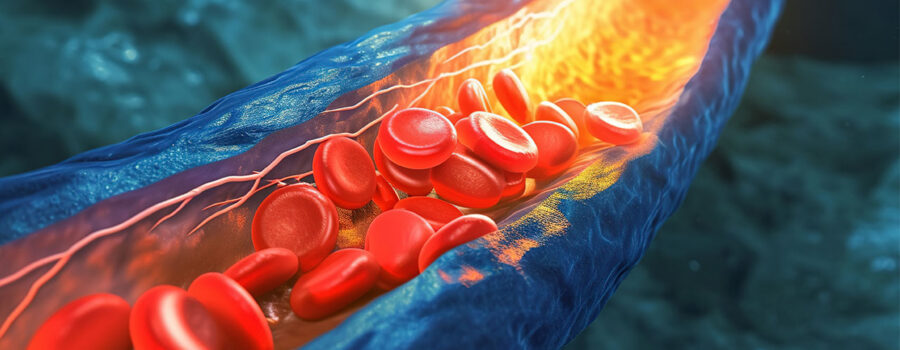In recent years, spirulina has gained significant attention for its health benefits, particularly in the realm of cardiovascular health. This blue-green algae is packed with nutrients and antioxidants that can profoundly affect cholesterol levels, especially when integrated into a plant-based lifestyle. Here, we delve into the scientific evidence supporting the role of fresh spirulina in lowering cholesterol and how it complements a plant-based diet.
Nutritional Profile of Spirulina
Spirulina is renowned for its rich nutritional content. A single tablespoon (7 grams) of spirulina contains:
- 4 grams of protein
- 14% of the Daily Value (DV) for thiamin
- 20% of the DV for riboflavin
- 6% of the DV for niacin
- 47% of the DV for copper
- 11% of the DV for iron
Additionally, it provides magnesium, potassium, and manganese. Fresh Spirulina also contains essential fatty acids, including omega-6 and omega-3, in an approximately 1.5 to 1 ratio. The primary active compound in fresh spirulina is phycocyanin, which gives it its distinctive blue color and possesses powerful antioxidant and anti-inflammatory properties.
Scientific Evidence on Fresh Spirulina and Cholesterol
Several studies have investigated the impact of fresh spirulina on cholesterol levels. According to research published by the National Institutes of Health (NIH), fresh spirulina supplementation has been shown to significantly lower total cholesterol, low-density lipoprotein (LDL) cholesterol (often referred to as “bad” cholesterol), and triglycerides while increasing high-density lipoprotein (HDL) cholesterol (“good” cholesterol).
One notable study involved participants who consumed fresh spirulina daily over several weeks. The results demonstrated a marked reduction in LDL cholesterol and triglycerides, alongside an increase in HDL cholesterol. These changes are attributed to fresh spirulina’s high content of antioxidants like phycocyanin, which help reduce oxidative stress—a key factor in the development of cardiovascular diseases.
Mechanisms Behind Fresh Spirulina’s Cholesterol-Lowering Effects
The mechanisms through which fresh spirulina exerts its cholesterol-lowering effects are multifaceted:
- Antioxidant Activity: Phycocyanin and other antioxidants in fresh spirulina combat oxidative stress by neutralizing free radicals. This reduces lipid peroxidation, a process contributing to plaque formation in arteries.
- Anti-inflammatory Properties: Chronic inflammation is a known risk factor for heart disease. Spirulina’s anti-inflammatory compounds help mitigate this risk by reducing inflammatory markers.
- Lipid Metabolism Regulation: Fresh Spirulina influences enzymes in lipid metabolism, promoting a healthier balance between LDL and HDL cholesterol.
Synergy with a Plant-Based Lifestyle
A plant-based lifestyle emphasizes whole foods such as fruits, vegetables, legumes, nuts, seeds, and whole grains—known for their heart-protective properties. When combined with fresh spirulina supplementation, this dietary approach can enhance cardiovascular health through several synergistic effects:
- Enhanced Nutrient Intake: Plant-based diets are naturally rich in fiber, vitamins, minerals, and phytochemicals that support heart health. Adding spirulina boosts the intake of essential nutrients like protein and iron without adding significant calories or fats.
- Improved Lipid Profiles: Plant-based diets and fresh spirulina independently contribute to improved lipid profiles by lowering LDL cholesterol and increasing HDL cholesterol.
- Reduced Inflammation: The anti-inflammatory properties of plant-based foods and fresh spirulina work together to reduce systemic inflammation, a critical factor in preventing heart disease.
Conclusion
Incorporating fresh spirulina into a plant-based lifestyle offers a powerful strategy for dramatically lowering cholesterol levels and enhancing cardiovascular health. The combination leverages fresh spirulina’s nutrient density and antioxidant capacity and the heart-protective benefits of plant-based diets.
Individuals can take proactive steps toward achieving optimal heart health by adopting this integrative approach, backed by scientific research from authoritative sources like NIH studies.
- National Institutes of Health (NIH):
- Description: The NIH is one of the world’s foremost medical research centers and provides extensive research studies on various health topics, including nutrition and cardiovascular health.
- United States Department of Agriculture (USDA):
- Description: The USDA offers comprehensive data on food composition, which helps understand nutritional profiles like fresh spirulina.
- Dietary Supplements Information Expert Committee (DSI-EC):
- Description: This committee evaluates dietary supplements’ safety profiles, ensuring consumers receive accurate information about potential benefits and risks associated with supplements like spirulina.





Recent Comments